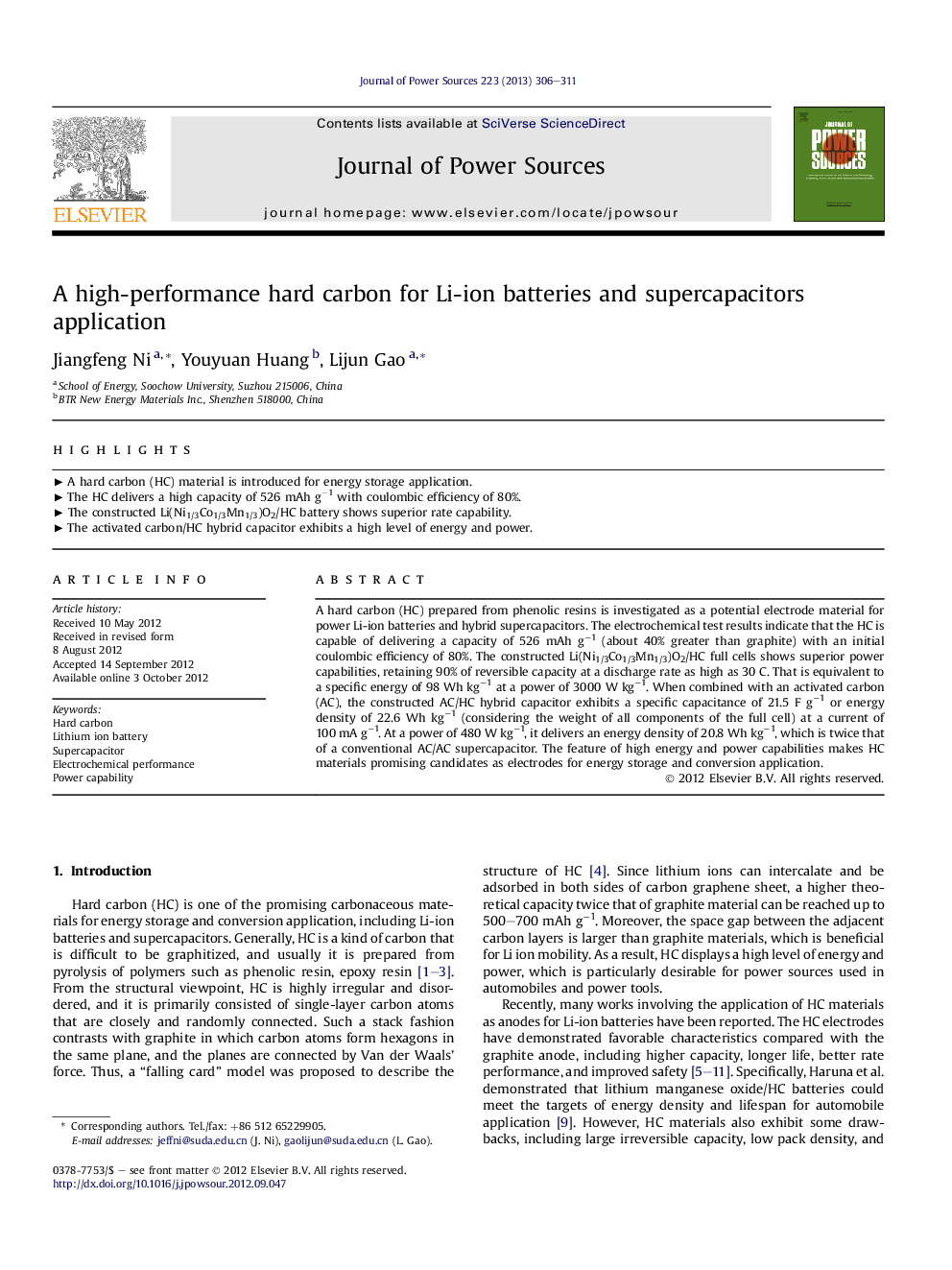| Article ID | Journal | Published Year | Pages | File Type |
|---|---|---|---|---|
| 1287672 | Journal of Power Sources | 2013 | 6 Pages |
A hard carbon (HC) prepared from phenolic resins is investigated as a potential electrode material for power Li-ion batteries and hybrid supercapacitors. The electrochemical test results indicate that the HC is capable of delivering a capacity of 526 mAh g−1 (about 40% greater than graphite) with an initial coulombic efficiency of 80%. The constructed Li(Ni1/3Co1/3Mn1/3)O2/HC full cells shows superior power capabilities, retaining 90% of reversible capacity at a discharge rate as high as 30 C. That is equivalent to a specific energy of 98 Wh kg−1 at a power of 3000 W kg−1. When combined with an activated carbon (AC), the constructed AC/HC hybrid capacitor exhibits a specific capacitance of 21.5 F g−1 or energy density of 22.6 Wh kg−1 (considering the weight of all components of the full cell) at a current of 100 mA g−1. At a power of 480 W kg−1, it delivers an energy density of 20.8 Wh kg−1, which is twice that of a conventional AC/AC supercapacitor. The feature of high energy and power capabilities makes HC materials promising candidates as electrodes for energy storage and conversion application.
► A hard carbon (HC) material is introduced for energy storage application. ► The HC delivers a high capacity of 526 mAh g−1 with coulombic efficiency of 80%. ► The constructed Li(Ni1/3Co1/3Mn1/3)O2/HC battery shows superior rate capability. ► The activated carbon/HC hybrid capacitor exhibits a high level of energy and power.
